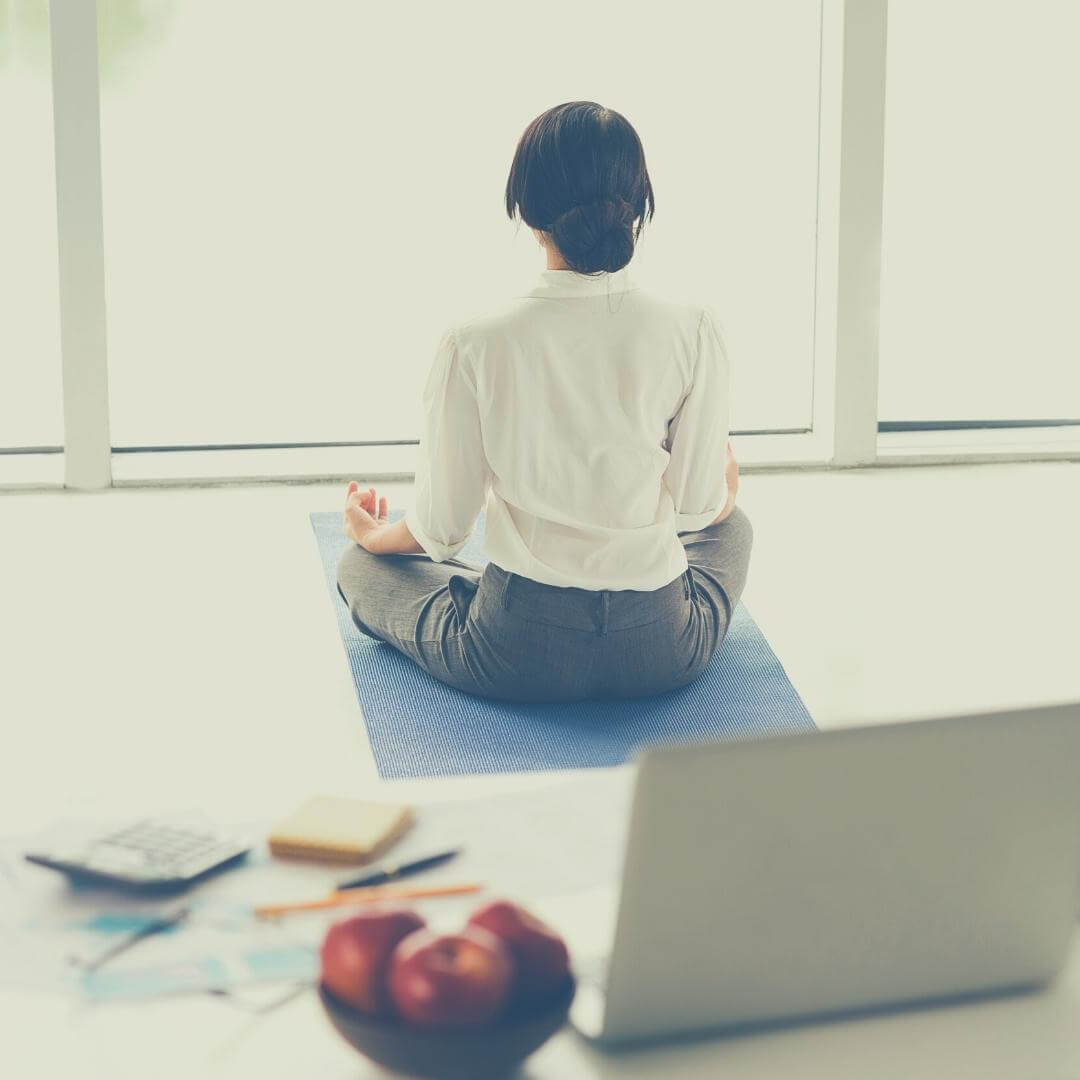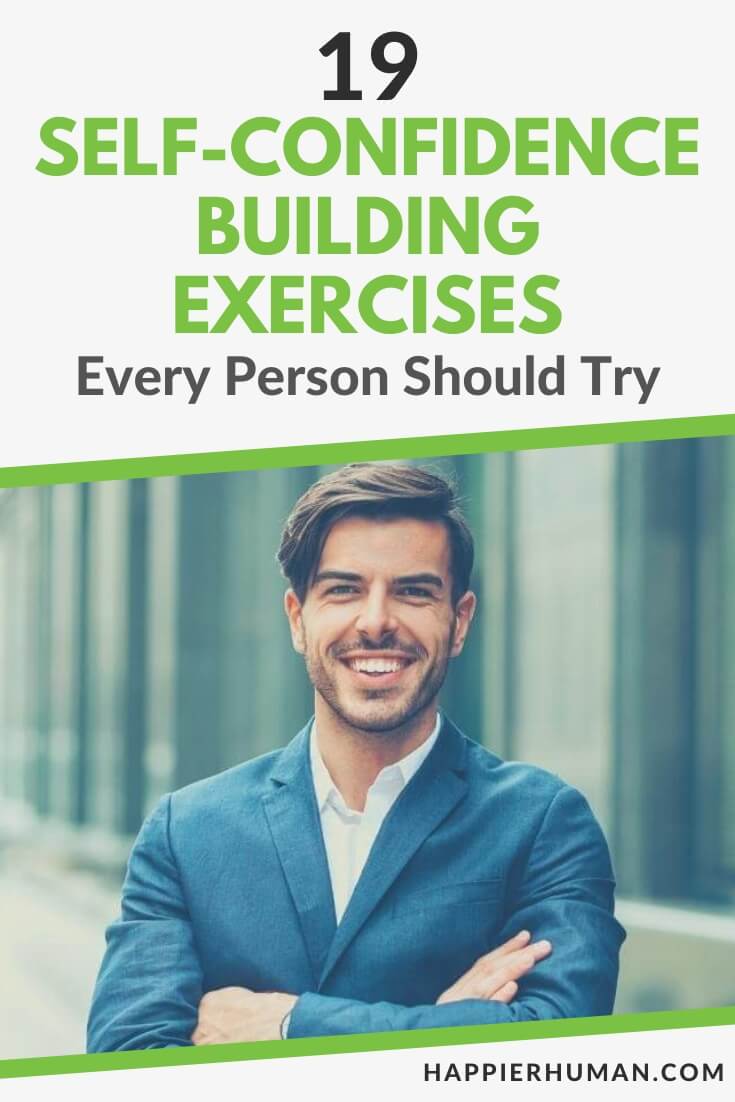If you struggle with self-confidence, it can be debilitating. Besides being personally painful, a lack of confidence in yourself and your decisions can affect other people's lives.
For example, if you're a doctor or an architect, you need to be confident that you're making the right calls because if you second-guess yourself, it can be costly in terms of life and money.
In this article, I'm going to show you how to use targeted exercises to build your self-confidence.
What is Self-Confidence and Why Is It Important?
If you're self-confident, you trust yourself most of the time. Your self-confidence has to do with your attitude towards your abilities and skills. People with high self-confidence know themselves well.
Moreover, they have a solid grasp of both their weakness and strengths. Being self-confident isn't about being perfect. To be self-confident is to accept who you are, while also being confident that you always have the ability to improve or change.
Alternatively, you may come across as submissive or passive if you have low self-confidence. In some cases, people with low self-confidence may have trouble trusting other people, and a lack of positive self-confidence may lead to stress and other health issues.
Why does self-confidence matter? If you lack self-confidence, you may suffer from feelings of inferiority, and you may be overly sensitive when you're criticized.
Being self-confident in your personal life is important because our levels of confidence affect every relationship in our lives. Similarly, it's important to be self-confident in our careers, too. Studies show that people are more likely to respect your opinion if you're a confident person.
Keep in mind that your self-confidence levels are rarely related to actual ability. Instead, self-confidence comes from positive perceptions that you have about yourself.
19 Confidence Building Exercises
The good news is that you can raise your self-confidence with practice. These confidence building exercises can help you become the strong, confident person you were born to be.
Exercise #1. There's an app for that.
While there is no shortcut to self-confidence, modern technology supplies us with some excellent tools to help us on our journey. Here are some of the best apps for helping us become more self-confident.
Exercise #2. Recite affirmations daily.
The benefits of reciting positive affirmations every day are backed by science. You naturally develop a more positive attitude when you recite positive affirmations every day. Once your attitude is in a healthier place, your self-confidence growth is more likely to happen.
Positive affirmations offer the following benefits.
Exercise #3. Boldly own your mistakes.
There's something very attractive about a strong person being able to admit when they're wrong. It doesn't come naturally to most of us. However, if you can learn how to gracefully admit when you've made a mistake or been wrong about something, it will raise your esteem in other people's eyes.
The result of this will be that you will grow in your own self-confidence.
Exercise #4. Do something scary.
You've probably heard the Eleanor Roosevelt quote: “Do one thing every day that scares you.” No, Eleanor Roosevelt wasn't a masochist who loved scary movies or jumping out of airplanes.
The late First Lady and humanitarian understood that one of the most effective confidence building exercises is to do something that you're afraid to do.

Fear can hold you back from achieving accomplishments and finding new opportunities. When you step out onto the proverbial ledge, you become more confident that you can conquer anything that life throws your way.
You can totally face your fears and even learn to embrace challenges and “scary” things.
To get started with this exercise, make a list of 30 small tasks that scare you. Over the next month, cross off one of those items per day.
Exercise #5. Learn a new skill.
Few things will make you feel more confident than successfully learning a new skill. Whether it's teaching yourself how to complete math problems or learning how to use a new tool, the accomplishment you will feel after learning something new is measurable.
The great thing is that it's easy to make everyday learning a habit. You don't have to spend hours a day taking an online course. You can break that learning up into chunks and spend 15 minutes to half an hour learning something new.
Another thing you can do when you learn a new skill is fill in any knowledge gaps you may have. Learning isn't just about courses, either. There are several different ways you can learn.
If you're game, consider tackling a comprehensive new skill such as learning a new language. However, keep in mind that to grow your self-confidence, you need to celebrate small wins and progress.
Exercise #6. Make a list of everything you're good at.
Once you've started learning new skills, why not document everything you're learning? Before you do that, take the time to make a list of everything you're already good at, and get creative with your thinking.
Here are some ideas that will get your mind working to think of all of the things you're good at doing.
Those are just some ideas that are intended to jump-start your own skillset documentation. What are you good at? Get it on paper. Then refer back to the list as needed to remind yourself that you are amazing human being.
Exercise #7. Adopt a power pose.
Did you know that your body language can shape the person you are (or become)? According to a study conducted by Harvard social psychology professor Amy Cuddy, subjects who stand or sit in high-power poses have a 25% decrease in cortisol and a 20% increase in testosterone.
This concept works in reverse, too. if you adopt low-power postures, your body language literally can hack your brain in a negative way, affecting your self-confidence.
Knowing this, why would anyone adopt a low-power pose? Well, the reason is simply habit or low self-confidence. However, we have good news: You can use your body to trick your brain into self-confidence.
Here are some ideas for effective power poses.
You don't have to do these poses all day long. Just doing one or two of them for 2-3 minutes daily can affect your self-confidence.
Exercise #8. Recruit a confidence partner.
We all have a support system via the people who care about us and cheer for our success. You can take this one step further with a partner in your self-confidence growth. Think of it as an accountability partner who is equally focused on growing self-confidence.
According to a study by Psychology Today, having supportive people in our lives can help us boost our self-confidence and self-esteem. This partner can be a family member, friend, or even a colleague.
Exercise #9. Channel your inner Sasha Fierce.
We all have a stronger self within us, and it's this alter-ego that can rise to the occasion when we need that extra push. The singer Beyonce calls her alter-ego Sasha Fierce. Sasha Fierce was who Beyonce would pretend to be when she would get up on stage.

The American Sociological Association's Social Psychology Quarterly journal published a study on mixed martial arts fighters that showed that the fighters often use a similar technique to boost their stamina and self-confidence.
You can channel your secret fighter or “Sasha Fierce” by imagining you're a super self-confident person. Here are some examples of things you can do to step outside of yourself and be a more confident version of yourself.
This concept is similar to the idea that you can “fake it 'til you make it.” Faking self-confidence for the long haul isn't necessarily effective, but it will often give you the start you need.
Exercise #10. Set a SMART goal that you can achieve for a quick win.
Nothing builds confidence more than achieving a goal. We should all be setting goals every day, even if it's a goal to go to bed at a certain time.
When setting goals, be sure to set SMART goals. The SMART acronym signifies these five points.
Once you've achieved your goal, celebrate your win, you magnificent human being.
Exercise #11. Celebrate quick wins and everything you accomplish (no matter how small!)
Quick wins matter. While a quick win may not exactly move the Earth, it will give you the confidence to set and achieve larger goals. While you want to celebrate your achievement when you complete a goal, it's also important to recognize just how hard you work every day to achieve small wins that no one will notice but you. Whose opinion matters? Your opinion matters!
Here are some examples of small wins you can celebrate every day. Any of these things are accomplishments and will help raise your self-confidence.
All of us have small wins and accomplishments every day. Isn't it about time we allow ourselves to celebrate them?
Exercise #12. List your past achievements and reflect on them as needed.
How does reflecting on your past achievements help you to build self-confidence? Reflection focuses on your emotional recall, also known as your affective memory.
The Stanislavski System was developed by Konstantin Stanislavski, a Russian theater director and actor. With the Stanislavski System, you focus on recalling experiences that showed your full capability. Once you recall the accomplishment, put yourself back inside the emotions of that experience. This will help you remember your power and build your self-confidence.
So that you've got your past achievements at the ready for reviewing as needed, we recommend creating a list of all of your past achievements, along with how those achievements made you feel.
You can create a Google Doc with your achievements, or you can write them out longhand in a journal.
Exercise #13. Listen to power music.
Most people are moved by music, and the science backs this up. When it comes to cultivating self-confidence, listening to music can help with that. in 2014, a study was published in the journal Social Psychological and Personality Science that shows that listening to power music can affect your levels of self-confidence.
in the study, researchers tested more than 30 songs from various genres to measure how powerful the test subjects felt both before and after hearing the music. The researchers learned that listening to songs such as Queen's “We Will Rock You” can significantly affect how powerful you feel. This seems to have to do with the low bass levels in the music.
Exercise #14. Meditate and spend some time in silence.
There are several ways to slow down the world so you can think and see more clearly. One of the best ways we know how to do this is to meditate. The benefits of meditation are well-documented, and one of the most important is being able to sit quietly with yourself.
You can meditate using guided meditations, or you can take a meditative walk in nature. Spending some time in the quiet will still the chaos that we all live with in the world, and it will give you time to do all of these things:
Exercise #15. Make it a habit.
Now that you know how to boost your self-confidence, create and track your new exercises to make sure they become habits.
You can schedule these exercises for every day or every week, then track them in your journal or in a habits app.
Exercise #16. Fake it 'til you make it.
The phrase “fake it 'til you make it” essentially means to pretend (to yourself and others) that you're the person you aspire to be. Here's the secret: You're not really pretending. You have it within you to be the person you want to be.
To be clear, this doesn't mean you should be a fake person. It also doesn't mean that you should be dishonest about your skills, experience, or ability.
The fact is, you really do have a lot to offer, and you're genuinely an amazing person. Most people are. What you need to “fake” is self-confidence.
A University of Sussex study found that humans are biologically geared to respect the opinions of people who are confident more than those of insecure people.
The more often you portray self-confidence, the more you'll convince your own mind that you have self-confidence. Add some extra pep to your step and slip into your role.
Exercise #17. Challenge your inner critic.
For most of us, our biggest critic isn't the person sitting in the office next to us or sleeping in the bed beside us. Our biggest critic is our own inner critic. You know, that nagging little voice in your head.
Our inner critics affect our self-confidence and convince us that we're going to fail at what we're trying to do. Then, when we proceed to do what we need to do, we actually may be less self-confident than we deserve to be. This can affect our performance.

But here's the worse thing about the inner critic: If that voice inside our heads is powerful enough, it can keep us from even trying in the first place. When we are afraid to even try, we're certainly going to fail because we didn't even make the effort.
Challenge your inner critic. When the voice whispers (or shouts) to you that you're going to fail, clap back at that voice and say, “I've got this. You have no power over me.”
Exercise #18. Be true to yourself.
Unless you're a professional actor, it's nearly impossible to have self-confidence when you're playing someone else's role. It makes you feel like you're a phony when you go along with what other people are doing.
To be truly self-confident, you need to be yourself, and you need to be OK with who you are. This means accepting yourself unconditionally and understanding that anything you'd like to improve about yourself is achievable when you're ready to make the effort.
This doesn't mean that you can't listen to other people. We're stronger when we glean valuable insights from our trusted inner circle. It simply means that you have the final say in the decisions you make.
If something doesn't feel right to you, listen to your inner voice (unless it's that pesky inner critic). Trust your gut. It will rarely betray you.
Exercise #19. Forget about external validation.
While we all need a support system, there's one person who is the main player in that support system: You. You are an integral part of your support system.
If you have an amazing support system of other people, that's great. Just keep in mind that not everyone has that, and if you don't have a solid support system, you'll still be OK because you have yourself.
While a support system is helpful, you need to be your own biggest cheerleader.
Final Thoughts on Confidence Building Exercises
When you become more self-confident, you have the tools you need to become the best version of yourself. Your newly gained self-confidence will also help you to lead others more effectively.
Would you like to help other people in your life learn how to build their own self-confidence? You can even teach these skills to children and young adults… it’s never too early to instill this important character trait.
For tips, be sure to check out “15 Self Esteem Activities for Kindergarteners” or “11 Self-Confidence Boosting Activities for Students.”
And if you're looking for more resources on self-confidence, be sure to check out these blog posts:
- 73 Overcoming Insecurities Quotes for a Confident 2023
- 15 Habits to Increase Your Self-Confidence
- 11 Self-Confidence Boosting Activities for Students


